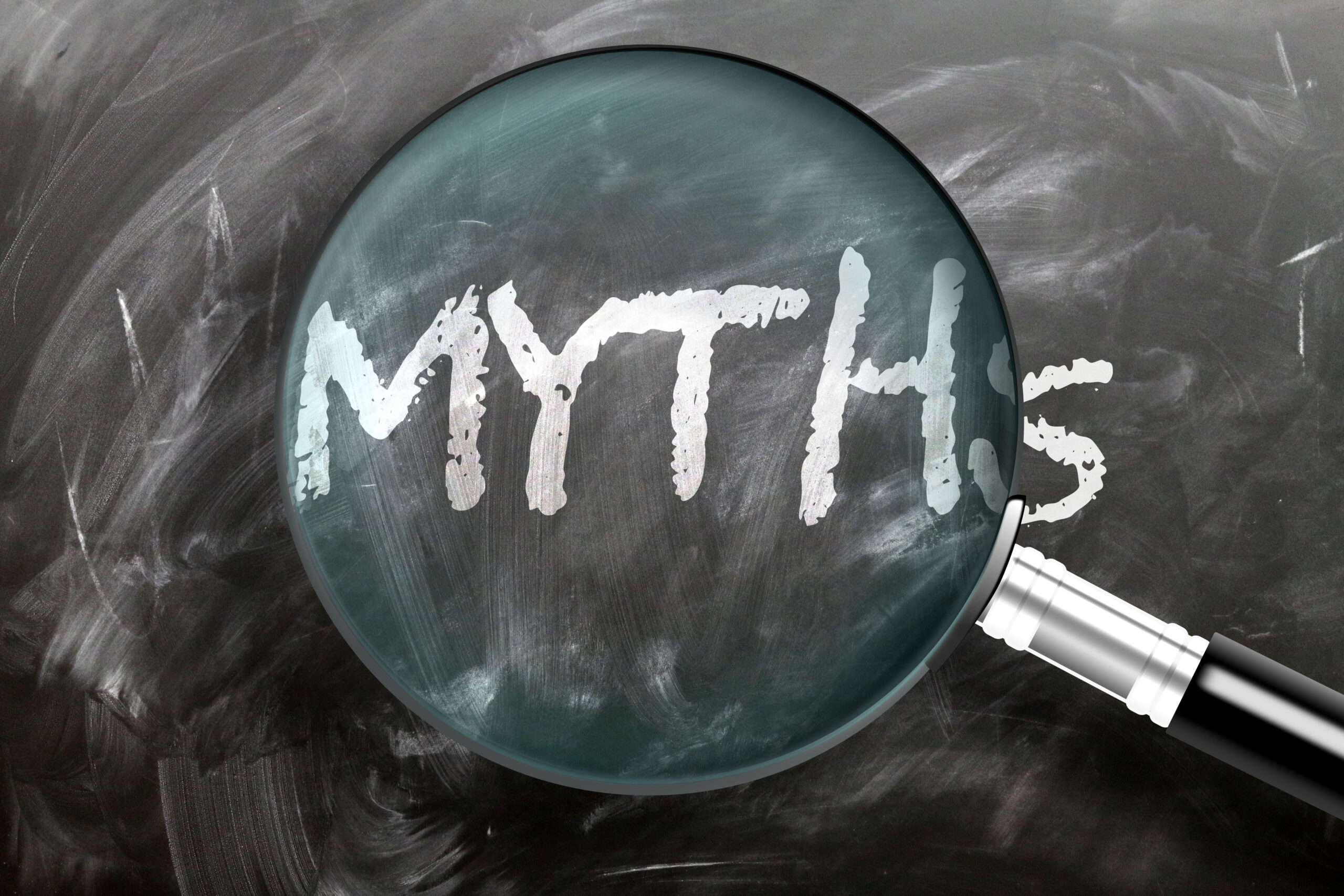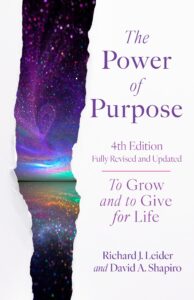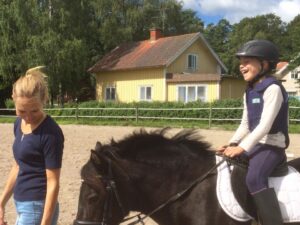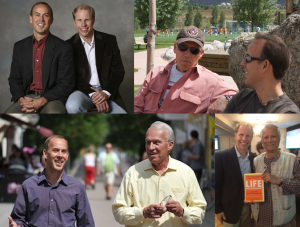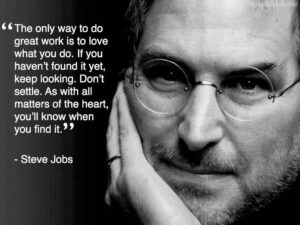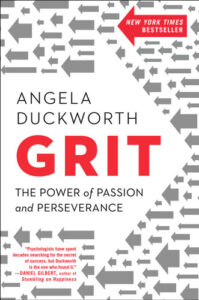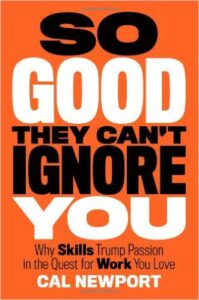Just follow your passion. Do what you love, and you’ll never work a day in your life. So goes the common advice from scads of college graduation speeches. As if it were so simple. Is it good advice? How can you find your passion anyway? What are the most common myths about passion and work? And what are the realities that bust those myths?
It helps to start with what passions are and aren’t. Researchers have defined passions as strong inclinations toward activities you value and like or love, and in which you invest your time and energy. I like to think of passions as the things that consume you with palpable emotion over time.
Signs of passion at work (whether paid or volunteer or in the household or with children) include:
- Loving what you do
- Talking often about what you like about your work
- Working extra even when you don’t have to
Myths about Passion and Work
For many people, the advice about following your passion feels confusing and unrealistic—and in some cases even discouraging. In fact, some of the most common messages about passion and work are based on myths that will hold you back instead of helping you move forward. Let’s set the record straight and unpack those myths.
Myth: You should just know what your passion is.
Reality: Many people struggle with this. The idea of finding their passion feels overwhelming. For most, passion doesn’t strike like a lightning bolt with instant clarity. Many people try out different interests for a number of years. Those who do discover their passion often go through long periods during which it wasn’t obvious.
Myth: You really need to find your passion.
Reality: Finding your passion isn’t the best way to think about it for many people. Business owner and author Emily Perron notes that for many people it feels like a frustrating “wild goose chase.” According to University of Pennsylvania psychology professor Angela Duckworth, passions tend to be developed more than they’re discovered, and they usually develop and deepen over time.
Finding something suggests a search with a set endpoint, or that it’s out there for you to just come upon. Developing something, by contrast, calls for growing it or causing it to grow and become more mature.
In reality, you’re likely to notice that you have certain interests and that some of these can become passions when you keep pursuing those interests long enough. Many people give up before reaching that point due to a lack of focus or discipline, a belief that work is a grind that you just endure so you can pay the bills, or settling for work that’s just okay. (Note: In advanced economies, the average person spends about 90,000 hours at work.)
Myth: You need to find your passion when you’re young.
Reality: For many people, passions take time to discover (and then develop and deepen). And that’s okay. That just makes your passions richer, and it helps you appreciate them.
Very few people discover their passion early in life and stick with it consistently. As we grow and gain new experiences, our interests naturally shift—and so do our passions.
With passions, as with so many things, the path is winding.
The pressure to figure it all out early in life can lead to frustration from feeling “behind” and choosing things for reasons that won’t hold up well over time. In truth, your interests and values evolve over time. It’s not a race. Instead, it’s a process of growth and discovery that tends to go much better with a blend of action and reflection, including significant time in what I call “discover mode.”
“…we may try many different jobs looking for the right ‘fit,’ the role that instantly flips the passion switch, and we may not take into account the fact that it often takes time to develop one’s passion for a job, along with the skills, confidence, and relationships that allow one to experience passion for work.”
-Jon M. Jachimowicz, “3 Reasons It’s So Hard to ‘Follow Your Passion,’” Harvard Business Review, October 15, 2019
Myth: Only certain kinds of jobs are amenable to passion.
(Examples: working in education, health care, social justice, the environment, etc.—or for world-changing startups or social enterprises.)*
Reality: You can integrate your passions into almost any job. Of course, if you do a good job and show that you’re a reliable and productive team member operating with integrity, that typically earns you more autonomy, respect, and credibility. But this can vary depending on how supportive your manager or team are.
Think about what makes work enjoyable, meaningful, and rewarding for you. With that lens, it’s not just about your passion for the work itself but also a number of other things, including autonomy, flexibility, financial security, benefits, healthy work environments, camaraderie, skill, flow, values, purpose, and impact.
Sure, many people are passionate about social issues, groups, or causes. But others are passionate about activities or skills (e.g., analyzing, coaching, coding, communication, data mining, editing, facilitating, healing, leading, parenting, problem-solving, etc.). There are passionate people in every field, industry, and sector.
Myth: You only have one passion.
Reality: You can have multiple passions, and they can change over time. You may find joy in a number of pursuits. Don’t lock yourself into just one path. Instead, explore all the things that spark real curiosity or motivation.
“When I stopped trying so darn hard to find my one, true passion that I could shape my life around,
I discovered the beauty of multi-pursuits of multi-passions.”
-Emily Perron, business owner and author
Myth: Everyone wants their passion incorporated into their job.
Reality: According to the research of University of Pennsylvania Professor Amy Wrzesniewski and others, people have different orientations toward their work (i.e., viewing it as a job, career, or calling). Those with a job orientation view work as means to an end. They work for pay and benefits to support their family and hobbies, and they prefer jobs that don’t interfere with personal life. They’re not as likely to have a strong connection to work as those with a career or calling orientation.
Also, when you turn your passion into your work, there’s a risk of stealing some of its magic as you get bogged down in deadlines and deliverables.
“Some people thrive when they find joy in how they earn a living, but others are at peace with less emotional connection to their work and instead relish the joy in their passions outside their nine-to-five.”
-David Anderson, business executive
Myth: Following your passion will lead you to success.
Reality: It’s not entirely wrong, but it’s vastly oversimplified and incomplete. Truth be told, it’s not enough to follow your passions. Your passions can be big performance drivers because of the fiery intensity and enduring commitment that they can help engender, but in our competitive world you still need a business model. You need to add value and do things that others are willing to pay you for—and spread the word about who you can help and how in a noisy world. Meanwhile, not all passions are well-suited to being your primary occupation or to generating your required income.
Myth: A passion should last forever.
Reality: Your passions must be tended to, or they might wither and die. They can fade over time as you go through different seasons of life. Two things can help prevent that:
- purpose: when you connect your passions to a deeper sense of meaning, you tap into a more sustainable source of energy.
- novelty: exploring fresh ways to engage your passions—with new people or in different contexts—can keep them vibrant and alive.
Myth: Pursuing your passion is selfish.**
Reality: As activist and writer Courtney Christenson has pointed out, neglecting your passion(s) prevents the people closest to you from knowing who you are and what drives you. It also limits your ability to make a meaningful impact, live a life of authentic alignment, and inspire others in the process.
“When you don’t pursue your passion it robs your family of truly, deeply knowing you. It robs your spouse from seeing your true self. It robs your children of their most powerful role model. (If you want them to grow up and pursue their passions, you need to show them how.) It robs the world of your voice, influence, and change-making potential. And most importantly, it robs you of truly living.” -Courtney Christenson, activist and writer
Myth: You have to find your passion early in life in order to be truly great at it.
Reality: You can discover, develop, and deepen a passion at virtually any stage of life—and still develop mastery with it. Examples abound, including Morgan Freeman, Toni Morrison, Samuel L. Jackson, Laura Ingalls Wilder, Ray Kroc, Colonel Sanders, Julia Child, Vera Wang, and countless others. It’s a trap to think it’s too late to develop your passions.
Myth: You’ll be successful and happy if you follow your passion.
Reality: Integrating your passions into your life and work can be powerfully rewarding and gratifying, but there’s much more to happiness. What about things like anticipation, savoring, gratitude, purpose, service, and healthy relationships?
Conclusion
There are many myths about passion and work that can lead you astray. It’s not as simple as just following your passion. Passion alone is not enough. But it may also be a big mistake for you to ignore or neglect your passions.
Passions can be a powerful part of the equation when it comes to productive and enjoyable work as well as happiness and fulfillment. But only part of the equation. Ideally, you’re wise to buttress your passions with your strengths, values, and purpose on the one hand and helping others while filling market needs with an effective business model on the other hand.
Here’s to finding ways to meet your financial needs and fulfill your obligations to your family or others while also integrating your passions into your life and work.
Tools for You
- Passion Probe to help you find the things that consume you with palpable emotion over time
- Crafting Your Life & Work online course to help you design your next chapter and create a life you love
- Traps Test (Common Traps of Living) to help you identify what’s getting in the way of your happiness and quality of life
Related Articles & Books
- “The Power of Integrating Our Passions into Our Life and Work”
- “How to Discover Your Passions—A Passion Probe Tool”
- “The People Who Fuel Your Passions”
- “Why Self-Awareness Is So Important—And How to Develop It”
- “The Power of Authentic Alignment in Your Life”
- “How to Discover Your Purpose”
- “How to Discover Your Core Values”
- “What Are Your Strengths–And How Can You Use Them More?”
- “Tired of Settling? How to Set Your Life and Work on Fire”
- Sir Ken Robinson, The Element: How Finding Your Passion Changes Everything
- Angela Duckworth, Grit: The Power of Passion and Perseverance
- Cal Newport, So Good They Can’t Ignore You: Why Skills Trump Passion in the Quest for Work You Love
Postscript: Inspirations on Passions
- “Never underestimate the vital importance of finding early in life the work that for you is play. This turns possible underachievers into happy warriors.” -Ken Robinson, The Element: How Finding Your Passion Changes Everything
- “When you recover or discover something that nourishes your soul and brings joy, care enough about yourself to make room for it in your life.” -Jean Shinoda Bolen, psychiatrist
- “Allow yourself to be silently guided by that which you love the most.” -Rumi, 13th century poet and Sufi mystic
- “If there is any difference between you and me, it may simply be that I get up every day and have a chance to do what I love to do, every day. If you want to learn anything from me, this is the best advice I can give you.” -Warren Buffett, investor
- “I did it for the buzz. I did it for the pure joy of the thing. And if you can do it for the joy, you can do it forever.” -Stephen King, writer
- “Passion is energy. Feel the power that comes from focusing on what excites you.” -Oprah Winfrey, media entrepreneur, author, and philanthropist
- “The only way to do great work is to love what you do.” -Steve Jobs, co-founder, Apple
- “If you don’t love what you’re doing, you’ll lose to someone who does! For every person who is half-hearted about their work or relationships, there is someone else who loves [it]. This person will work harder and longer. They will outrun you.” -Jerry Porras, Stewart Emery, and Mark Thompson, Success Built to Last
- “The key to creating passion in your life is to find your unique talents, and your special role and purpose in the world. It is essential to know yourself before you decide what work you want to do.” -Stephen R. Covey, author, executive, and teacher
- “The conventional wisdom on career success—follow your passion—is seriously flawed. It not only fails to describe how most people actually end up with compelling careers, but for many people it can actually make things worse: leading to chronic job shifting and unrelenting angst when one’s reality inevitably falls shorts of the dream.” -Cal Newport, So Good They Can’t Ignore You
- “You may think that you’ve lost your passion, or that you can’t identify it, or that you have so much of it, it threatens to overwhelm you. None of these is true.” -Steven Pressfield, Do the Work
- “…my recommendation would be follow your contribution. Find the thing that you’re great at, put that into the world, contribute to others, help the world be better and that is the thing to follow.” -Ben Horowitz, 2015 commencement address
- “…expressing your passion can be beneficial because others admire you more and may help you become more successful. At the same time, it may also make it more likely they will ask you to take on tasks that fall outside of narrow job descriptions, placing you at risk of stretching yourself too thin and burning out.” -Jon M. Jachimowicz, “3 Reasons It’s So Hard to ‘Follow Your Passion,’” Harvard Business Review, October 15, 2019
- “The message to find your passion is generally offered with good intentions, to convey: Do not worry so much about talent, do not bow to pressure for status or money, just find what is meaningful and interesting to you. Unfortunately, the belief system this message may engender can undermine the very development of people’s interests.” -O’Keefe PA, Dweck CS, Walton GM. Implicit Theories of Interest: Finding Your Passion or Developing It? Psychol Sci. 2018 Oct;29(10):1653-1664.
* Computer science professor and author Cal Newport made this point in his book, Deep Work: Rules for Focused Success in a Distracted World.
** Many women struggle with this myth, in part due to gender stereotypes and cultural conditioning.
+++++++++++++++++
Gregg Vanourek is a writer, teacher, and TEDx speaker on personal development and leadership. He is co-author of three books, including LIFE Entrepreneurs: Ordinary People Creating Extraordinary Lives (a manifesto for living with purpose and passion) and Triple Crown Leadership: Building Excellent, Ethical, and Enduring Organizations (a winner of the International Book Awards). Check out his Crafting Your Life & Work online course or get his monthly newsletter. If you found value in this article, please forward it to a friend. Every little bit helps!

